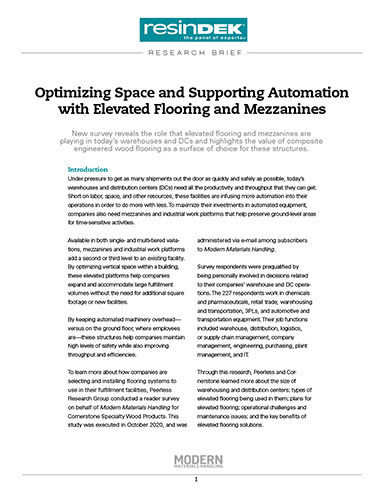Under pressure to get as many shipments out the door as quickly and safely as possible, today's warehouses and distribution centers (DCs) need all the productivity and throughput that they can get. Short on labor, space, and other resources, these facilities are infusing more automation into their operations in order to do more with less.
To maximize their investments in automated equipment, companies also need mezzanines and industrial work platforms that help preserve ground-level areas for time-sensitive activities.
Available in both single- and multi-tiered variations, mezzanines and industrial work platforms add a second or third level to an existing facility. Optimizing vertical space within a building, these elevated platforms help companies expand and accommodate large fulfillment volumes without the need for additional square footage or new facilities.
By keeping automated machinery overhead—versus on the ground floor, where employees are—these structures help companies maintain high levels of safety while also improving throughput and efficiencies.
To learn more about how companies are selecting and installing flooring systems to use in their fulfillment facilities, Peerless Research Group conducted a reader survey on behalf of Modern Materials Handling for Cornerstone Specialty Wood Products. This study was executed in October 2020, and was administered via e-mail among subscribers to Modern Materials Handling.
New survey reveals the role that elevated flooring and mezzanines are playing in today’s warehouses and DCs and highlights the value of composite engineered wood flooring as a surface of choice for these structures.
Fill out the information below to download the resource.

Article topics
Email Sign Up











